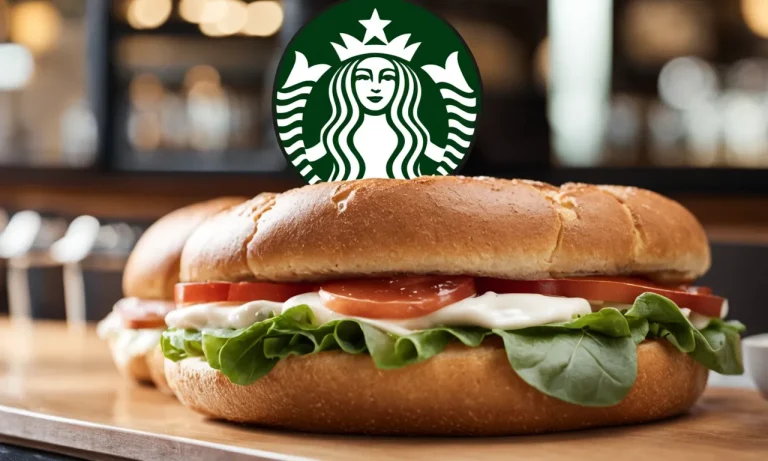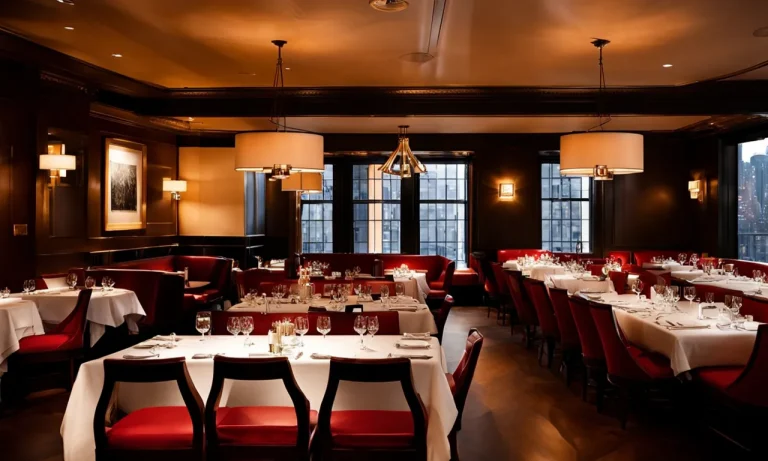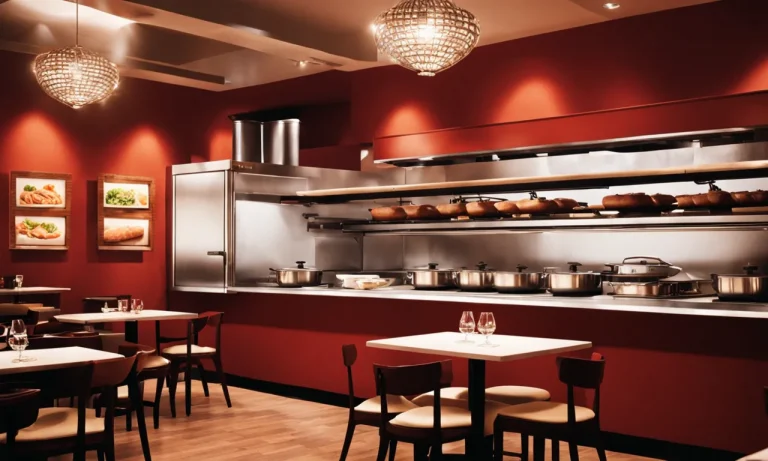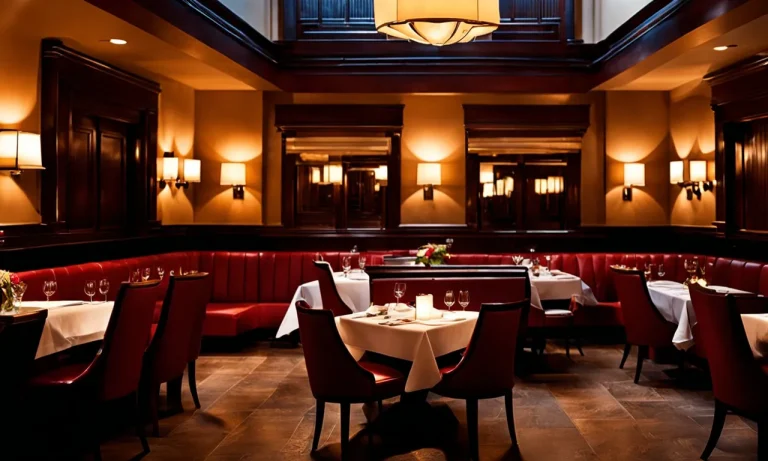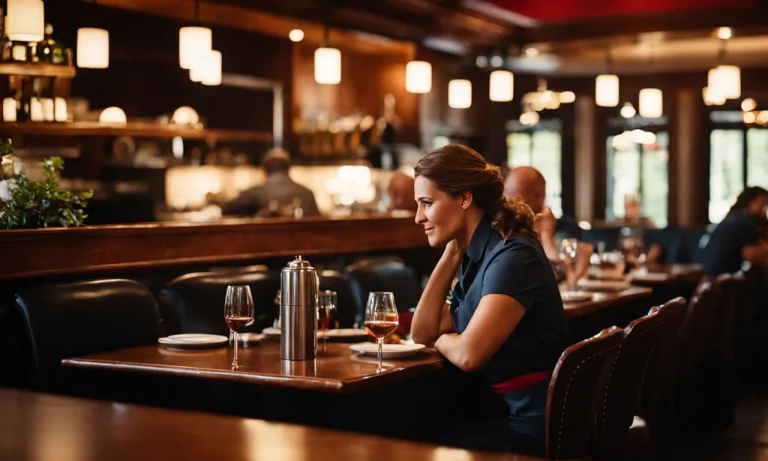As you walk into your favorite restaurant and are greeted by a smiling face, ever wonder what the responsibilities are of the person who just welcomed you? Restaurant hosts play a crucial role in the guest experience by managing all front-of-house operations.
If you’re short on time, here’s a quick answer to your question: The key responsibilities of a restaurant host include greeting and seating guests, managing waitlists and reservations, monitoring table availability, and ensuring excellent customer service.
In this comprehensive guide, we’ll take a closer look at exactly what restaurant hosts do on a daily basis. From the minute the restaurant opens its doors to the minute it closes, hosts are on their feet navigating a variety of tasks.
Whether it’s a busy Saturday night or a slow Tuesday lunch, hosts are crucial to keeping everything running smoothly in the dining room. They are masters of organization and customer service who ensure each guest has a positive experience.
Greeting and Seating Guests
Greeting and seating guests is one of the primary responsibilities of a restaurant host. It is their job to create a positive first impression and ensure that customers feel welcome from the moment they enter the establishment.
Saying Hello
When guests arrive, a restaurant host should greet them with a warm smile and a friendly hello. This simple act of hospitality sets the tone for the entire dining experience. By making guests feel valued and acknowledged, the host helps to establish a positive rapport right from the start.
A friendly greeting can make a huge difference in how guests perceive the overall quality of the restaurant.
Managing Wait Times
Another important responsibility of a restaurant host is to manage wait times effectively. This involves accurately estimating wait times based on table availability and providing guests with regular updates.
By keeping guests informed and engaged during their wait, the host helps to minimize frustration and maintain a positive atmosphere. Additionally, the host must coordinate with the servers and kitchen staff to ensure that tables are cleared and cleaned promptly to accommodate the next group of guests.
Escorting to Tables
Once a table becomes available, the restaurant host escorts the guests to their assigned table. This includes guiding them through the restaurant, ensuring that they are seated comfortably, and providing menus.
The host may also offer additional assistance, such as recommending popular dishes or explaining any specials. By providing attentive and personalized service, the host helps to enhance the overall dining experience for the guests.
Overseeing Waitlists and Reservations
Monitoring Wait Times
One of the key responsibilities of a restaurant host is to monitor wait times and ensure that guests are seated in a timely manner. This involves keeping track of the number of available tables, estimating the time it will take to seat each party, and communicating wait times to guests.
By efficiently managing the waitlist, hosts help create a positive dining experience for customers.
Fielding Reservation Calls
Restaurant hosts are often responsible for answering phone calls from customers who want to make a reservation. They must be knowledgeable about the restaurant’s availability, seating capacity, and special requirements for large parties or private events.
By providing accurate information and efficiently managing reservations, hosts help ensure that customers have a smooth and enjoyable dining experience.
Organizing Reservation Book
To effectively manage reservations, hosts need to keep an organized reservation book or system. This includes recording reservation details such as the date, time, number of guests, and any special requests.
By maintaining an organized reservation system, hosts can easily refer to the information when seating guests and accommodate any specific needs or preferences.
Restaurant hosts play a crucial role in overseeing waitlists and reservations, ensuring that guests are seated promptly and efficiently. By monitoring wait times, fielding reservation calls, and organizing the reservation book, hosts contribute to a smooth and enjoyable dining experience for customers.
Keeping Tables Turned Over
Communicating with Servers
A vital responsibility of a restaurant host is to effectively communicate with the servers. They act as a liaison between the front of the house and the back of the house, ensuring that tables are seated promptly and efficiently.
Hosts work closely with the servers to determine the availability of tables, assign seating arrangements, and communicate any special requests or dietary restrictions from guests. By maintaining clear and constant communication, hosts help streamline the overall dining experience for both customers and staff.
Bussing and Resetting
In addition to seating guests, hosts also play a crucial role in bussing and resetting tables. As soon as a party finishes their meal and leaves, hosts promptly clear the table, removing any dirty dishes, utensils, or glassware.
They ensure that the table is thoroughly cleaned and reset with clean linens, utensils, and condiments before the next guests arrive. This attention to detail not only enhances the overall appearance of the restaurant but also ensures a smooth transition for new customers, minimizing any wait time.
Maximizing Table Usage
One of the key responsibilities of a restaurant host is to maximize table usage. This involves carefully managing the flow of guests, optimizing seating arrangements, and minimizing empty tables. By efficiently seating customers, hosts help create a steady turnover of tables, maximizing the restaurant’s capacity and revenue potential.
They use their organizational skills and knowledge of the restaurant’s layout and reservation system to strategically assign tables, taking into account party sizes, server availability, and customer preferences.
Through their efforts, hosts contribute to the overall success and profitability of the establishment.
Delivering Excellent Customer Service
One of the key responsibilities of a restaurant host is to deliver excellent customer service. This involves addressing complaints, accommodating requests, and creating a welcoming atmosphere for guests.
Addressing Complaints
When guests have complaints or concerns, it is the role of the restaurant host to address them in a timely and professional manner. This includes listening to the customer’s concerns, empathizing with their situation, and finding a suitable resolution.
Whether it’s a problem with the food, service, or any other aspect of the dining experience, a skilled host knows how to handle complaints to ensure customer satisfaction.
According to a survey conducted by National Restaurant Association, 80% of customers believe that how a complaint is handled is a key factor in their decision to return to a restaurant. Therefore, it is crucial for hosts to handle complaints effectively to maintain a positive reputation for the establishment.
Accommodating Requests
Another important aspect of delivering excellent customer service is accommodating special requests from guests. These requests may include dietary restrictions, seating preferences, or specific arrangements for celebrations.
A good restaurant host is attentive and proactive in fulfilling these requests to ensure a memorable dining experience for the guests.
According to a study by Dineout, 70% of diners are more likely to visit a restaurant that caters to their specific needs and preferences. By going above and beyond to accommodate requests, hosts can leave a lasting positive impression on customers and increase the likelihood of repeat business.
Creating a Welcoming Atmosphere
Creating a welcoming atmosphere is essential for a restaurant host. This involves greeting guests with a warm smile, providing them with necessary information about the restaurant, and ensuring their comfort throughout their visit.
A friendly and welcoming host sets the tone for the entire dining experience and can greatly influence a customer’s overall satisfaction.
Research by OpenTable shows that 75% of diners consider the overall atmosphere and ambiance of a restaurant when choosing where to dine. Therefore, it is important for hosts to create an inviting atmosphere to attract and retain customers.
Additional Responsibilities
In addition to their main duties of greeting and seating guests, restaurant hosts often have a variety of other responsibilities to ensure the smooth operation of the establishment. These additional tasks may vary depending on the size and type of restaurant, but they are crucial in creating a positive dining experience for customers.
Answering Phones
One of the additional responsibilities of a restaurant host is answering phone calls. They serve as the first point of contact for customers who wish to make reservations, inquire about the menu, or have any other questions about the restaurant.
It is essential for hosts to be courteous, knowledgeable, and efficient when handling phone calls. They should be able to provide accurate information and address any concerns the caller may have. By providing excellent phone service, the host contributes to the overall customer satisfaction and helps to maintain a good reputation for the restaurant.
Assisting Servers
Another important task that restaurant hosts often undertake is assisting servers. This can involve a range of responsibilities, such as helping to set up tables, refilling water glasses, and delivering bread or appetizers to the tables.
By assisting servers, hosts contribute to the efficiency of the dining experience. They help to ensure that customers receive prompt and attentive service, which can greatly impact their overall satisfaction.
Additionally, by working closely with servers, hosts develop a strong team dynamic, fostering a positive work environment.
Stocking Front Area
Keeping the front area of the restaurant well-stocked is another responsibility that falls on the shoulders of a restaurant host. This includes items such as menus, condiments, napkins, and other supplies that customers may need during their visit.
By regularly checking and replenishing these items, hosts help to create a seamless dining experience for guests. Customers appreciate having everything they need readily available, and it reflects positively on the restaurant’s attention to detail and customer service.
Conclusion
At the end of a busy shift, a good host is ready to put their feet up after standing for hours, multi-tasking, and ensuring every guest had a positive dining experience. From greeting first-time customers to accommodating the regulars, they are familiar faces who keep the restaurant front-of-house running efficiently.
The next time you’re dining in a restaurant, take a moment to appreciate the focus and hustle of the host, an unsung hero of the service industry.

